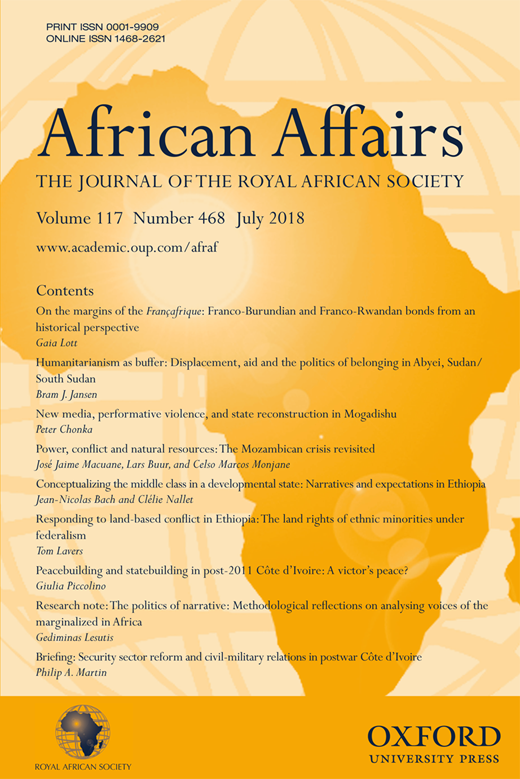Malawi: The Road to the 2019 Tripartite Elections. Reflections on Corruption, Land and Multiparty Politics
On May 21st 2019, Malawi will hold its tripartite elections, where voters will vote for the President, Members of Parliament and local Councillors. 2019 will also mark the 25 years of multiparty politics in Malawi since the one-party regime presided by Hastings Kamuzu Banda came to an end in 1994.
Of Walls and Men: Securing African Borders in the 21st Century
African borders are well-known for their porosity. Although they are crucial economic interfaces, they also crystallize political and security tensions, in both inter-state wars and intra-state conflicts involving rebels or autonomist groups.
Corruption, Ethnicity and Violence as a Triple Political Strategy. The Changing Face of Politics in Zambia
Recently, Zambian politics have been changing in a pretty checkered manner. The threat of corruption, political violence and ethnic-politics has been growing since the ruling Patriotic Front Party (PF) assumed power in 2011.

Conceptualizing the middle class in a developmental state: Narratives and expectations in Ethiopia
The category ‘middle class’ was used increasingly throughout the 2010s to identify social changes occurring in African countries, including Ethiopia. However, the category itself is hard to define and has been employed to describe very diverse socio-economic dynamics.
Japan's Revived African Policy
By organising TICAD (Tokyo International Conference on African Development) for the first time in Africa in August 2016, Japan intended to accelerate and deepen its relationship with the continent.

What Role for Japan in Africa's Security After Withdrawal from South Sudan?
There is still a big gap between the discourse and the reality of what Japan wants - and what it can achieve in Africa.
Are African Middle Classes Coming Together? The Case of Telecommunications Employees in Kinshasa
For many observers, a change in perception of the African continent occurred in the 2010s. Attention has focused on the relatively high rates of economic growth and a high population growth associated with urban expansion; both indicators interpreted as promises of economic “emergence” leading to potential new markets.
Sustainable Electrification for Asia and Africa
Complementary solutions to national grid extensions let hope for significant improvements in the field of energy access, consistent with current economic and environmental challenges. This Note explores the regulatory and economic prerequisites that must be enhanced in order to support the emergence of mini-grid and off-grid technologies.
Identifying the Middle Classes: Diversity, Specificities and Consumption Practices Under Pressure
The international viewpoint on the African continent has profoundly changed in the last decade. Images advertised by the media drifted from afro-pessimism - the sad fate of Africa (wars and poverty) - to afro-optimism - a brighter future for the continent.
Burundi: Unravelling the Peace
Since achieving independence in 1962, Burundi has experienced several episodes of civil war, the last of which came to end when the Arusha Accord was signed in 2000. The gradual return to peace in the wake of the Arusha Accord has been jeopardised by Pierre Nkurunziza’s announcement on 25th April 2015 that he would stand as a candidate for the presidency.
Support independent French research
Ifri, a foundation recognized as being of public utility, relies largely on private donors – companies and individuals – to guarantee its sustainability and intellectual independence. Through their funding, donors help maintain the Institute's position among the world's leading think tanks. By benefiting from an internationally recognized network and expertise, donors refine their understanding of geopolitical risk and its consequences on global politics and the economy. In 2024, Ifri will support more than 70 French and foreign companies and organizations.














